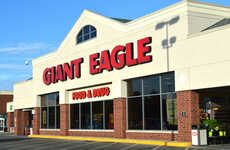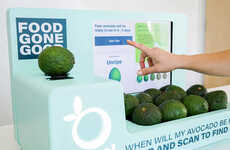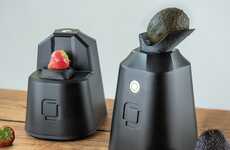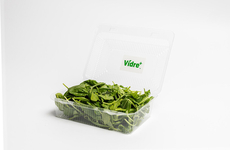
EMPA Created An Embedded Temperature Sensor to Keep Fruit Fresh
Alyson Wyers — April 11, 2017 — Lifestyle
References: empa.ch & springwise
This embedded temperature sensor is designed to keep your food fresh for longer. Developed by the Swiss Federal Laboratories for Materials Sciences and Technology (or EMPA), the sensors are being tested in fruit shipments. They are able to send real-time data to suppliers and those exporting produce for the purposes of monitoring the fruit's temperature in transit.
The research institute made fake fruit by replicating apples, bananas, mangos and oranges outfitted with an embedded temperature sensor. Cooling is a crucial element of cargo shipping fruit and other food, as it ensures produce doesn't spoil or get ruined during transport.
This demonstrates how technology can better processes of shipping and technology, while also reducing food waste.
The research institute made fake fruit by replicating apples, bananas, mangos and oranges outfitted with an embedded temperature sensor. Cooling is a crucial element of cargo shipping fruit and other food, as it ensures produce doesn't spoil or get ruined during transport.
This demonstrates how technology can better processes of shipping and technology, while also reducing food waste.
Trend Themes
1. Embedded Temperature Sensors - The development of embedded temperature sensors allows for real-time monitoring of fruit shipments, reducing spoilage and waste during transport.
2. Real-time Data Monitoring - Real-time data monitoring enables suppliers and exporters to track and adjust temperature conditions during fruit shipments, optimizing freshness and reducing waste.
3. Improved Cargo Cooling - Innovations in cargo cooling technology enhance the preservation of fruits and other perishable food items during transportation, minimizing spoilage and maintaining product quality.
Industry Implications
1. Transportation and Logistics - The transportation and logistics industry can leverage embedded temperature sensors and real-time data monitoring to improve the freshness and reduce wastage of perishable goods during transit.
2. Food and Beverage - The food and beverage industry can benefit from improved cargo cooling technology to maintain the quality and extend the shelf life of fruits and other perishable products while minimizing food waste.
3. Information Technology - The information technology industry can play a crucial role in developing and implementing real-time data monitoring solutions for temperature-sensitive shipments, enhancing supply chain efficiency and reducing losses.
3.6
Score
Popularity
Activity
Freshness























